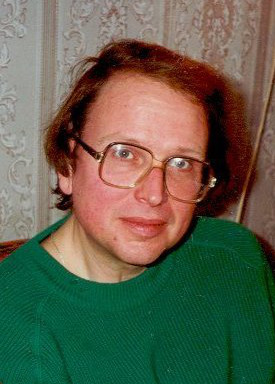Originally posted by Beef Oven!
View Post
Tchaikowsky's last symphony
Collapse
X
-
I may have missed it on this thread, but regarding Legends surrounding the Pathetique, has any one discussed the idea that was floated a few years ago that the Composer deliberately committed suicide by drinking a glass of water infected with cholera, after suppossedly being condemned to death by his old Law School Classmates for being homosexual?
Comment
-
-
Thanks for that, FFOriginally posted by Ferretfancy View Post0
Silvestri with the Bournemouth SO is also very recommendable.
We played all of the symphonies. including Manfred, which was the first time that I encountered it since playing it with Beecham and the RPO in 1956. Symphony Nº 3 was particularly impressive and Nº 4 also, if you could bear the Maestro substituting the triplet opening quavers with 2 semi quavers and a crotchet!
(We all have our own shortcomings)
HS
Comment
-
-
... why is Hornspieler digressing from the subject of the Opening Post ?Originally posted by Hornspieler View Post. . . Manfred, which was the first time that I encountered it since playing it with Beecham and the RPO in 1956. Symphony Nº 3 was particularly impressive and Nº 4 also, if you could bear the Maestro substituting the triplet opening quavers with 2 semi quavers and a crotchet!
HS


Comment
-
-
Alexander Ivashkin, in his monograph on Schnittke, talks of several Schnittke and other Russian works (in particular symphonies) that are 'dying' - works that eschew a triumphant, upbeat or resolutory finale, in favour of an extended postlude or epilogue, sometimes of disproportionate length to the rest of the work. Such works would include Schnittke's 3rd Symphony and 2nd Cello Concerto, and also (as ahinton has mentioned upthread) Shostakovich's 4th. Ivashkin identifies Tchaikovsky's 6th as the pioneer example of this concept of the symphony that is dying.
Quite coincidentally to this thread, I have been listening rather a lot recently to Tchaik 6 in the live recording in the Yuri Temirkanov Brilliant Classics set. A very powerful reading indeed.
Comment
-
-
Because any discussion about the motivation and effectiveness of his last symphony must examine the comparison between Tchaikowsky's final symphony and his previous symphonic style and output.Originally posted by vinteuil View Post... why is Hornspieler digressing from the subject of the Opening Post ?

HS
Comment
-
-
..Originally posted by Hornspieler View PostBecause any discussion about the motivation and effectiveness of his last symphony must examine the comparison between Tchaikowsky's final symphony and his previous symphonic style and output.
HSOriginally posted by Hornspieler View PostCan we please stick to the subject of this post:
Tchaikowsky's 6th symphony and the legends which surround it
Symphony Nº 5 and its merits does not belong here.
Can we not stick to the point of this thread and take our matters both technical and irelevant elsewhere?
Thank you
HS
Comment
-
-
Hmmmm...must be a good market for a patent Petard Hoist....Originally posted by ahinton View PostSomehow the words "hoist" and "petard" sring unbidden to mind...I will not be pushed, filed, stamped, indexed, briefed, debriefed or numbered. My life is my own.
I am not a number, I am a free man.
Comment
-
-
Apologies for the self-bump, but one could develop the idea of the 'dying' symphony to works such as Silvestrov's 5th Symphony, essentially a 45-minute postlude to a previous and unspecified 'drama'.Originally posted by Tapiola View PostAlexander Ivashkin, in his monograph on Schnittke, talks of several Schnittke and other Russian works (in particular symphonies) that are 'dying' - works that eschew a triumphant, upbeat or resolutory finale, in favour of an extended postlude or epilogue, sometimes of disproportionate length to the rest of the work. Such works would include Schnittke's 3rd Symphony and 2nd Cello Concerto, and also (as ahinton has mentioned upthread) Shostakovich's 4th. Ivashkin identifies Tchaikovsky's 6th as the pioneer example of this concept of the symphony that is dying.
Quite coincidentally to this thread, I have been listening rather a lot recently to Tchaik 6 in the live recording in the Yuri Temirkanov Brilliant Classics set. A very powerful reading indeed.
Comment
-


Comment